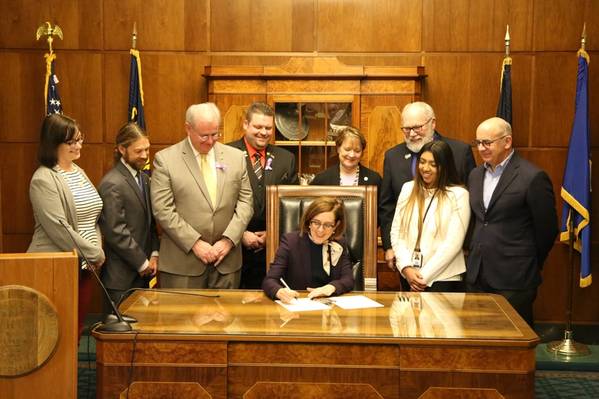
Oregon Governor Kate Brown on Wednesday signed a bill indefinitely blocking offshore drilling in the U.S. west coast state's territorial waters as lawmakers from several coastal states move to close their shorelines to oil and gas exploration.
Senate Bill 256 signed by Governor Brown this week makes permanent a moratorium on oil and gas leasing in Oregon’s territorial sea that had been set to expire in January 2020.
Oregon hasn't seen offshore drilling in decades, but supporters of the bill contend that activity could arise after the Trump Administration proposed last January to open 90% of U.S. waters to new oil and gas leasing as a means to boost domestic energy production.
“The federal government’s proposal to open most American waters to offshore drilling would have opened our shores, our wildlife, our communities, and our economy to the threat of devastation from an oil spill. It was a move that undermined decades of bipartisan coastal protection and turned its back on our commitment to reducing our dependence on fossil fuels,” Governor Brown said in a statement.
The legislation, sponsored by Senator Arnie Roblan, Representative David Gomberg and Representative Brock Smith, also blocks the development of new piers, pipelines and other infrastructure in state waters that would support drilling in federal waters further offshore that are not regulated by state law.
“To anyone interested in a comprehensive well-thought-out energy policy for the United States, total bans of offshore energy exploration, whether that be wind, oil and gas, current or wave, even in state waters, are viewed as knee-jerk, one-size-fits-all, purely emotional or political decisions,” Randall Luthi, president of industry group National Ocean Industries Association (NOIA), told OEDigital.
“Such bans,” he said, “are easy to do, but lack target specificity to better meet goals. This is particularly true since there is little or nothing known about the energy potential off the shores of Oregon. Keeping areas open, and thus allowing seismic surveys, would at least provide some basis for making a sound decision in the future.”
Oregon is one of several states that opposes oil drilling and view it as a risk to their multibillion-dollar tourism and fishing industries. California and Delaware have also passed legislation blocking oil exploration, and several Atlantic states and Hawai’i are also working on drilling bans.
The U.S. Bureau of Ocean Energy Management (BOEM) is currently finalizing its revised federal oil and gas leasing program for 2019 to 2024, set to be released in the coming weeks.



